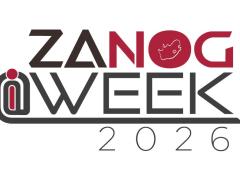Drakenstein Municipality in the Western Cape province of South Africa has won a Sustainability Impact Award for the Anglophone Africa region, shining the spotlight on the Municipality’s unwavering commitment to sustainable leadership and its forward-thinking approach to ensuring a sustainable future for its coming generations.
The Municipality received the prestigious award from Schneider Electric, recently named the World’s Most Sustainable Corporation 2025 by Corporate Knights and the only company to rank first in the Global 100 twice. The handover took place at the launch of the company’s inaugural Innovation Hub in Africa in Midrand, Gauteng, on Wednesday, 11 June 2025.
“Being acknowledged in this way by a world leader in this regard is indeed a feather in our cap and a recognition of Drakenstein’s own dedicated sustainability journey and role in the quest for net zero. It paves the way for us to form further partnerships in this space,” said Councillor Stephen Korabie, Executive Mayor of Drakenstein Municipality.
“Municipalities and the communities we serve are directly affected by sustainability issues. Similarly, municipalities are in a unique and powerful frontline position to promote sustainable solutions through our policies, operations, infrastructure design, and resources management. In this aspect we could and should take the lead.
“As a traditional agricultural community, sustainability is in Drakenstein’s DNA. As a fast-developing area, we believe in following an all-encompassing, responsible and forward-looking approach to ensure a protected environment and sustainable tomorrow for our next generations,” said the Executive Mayor.
Drakenstein Municipality, headquartered in Paarl, received the Sustainability Impact Award for commendable efforts made to achieve its decarbonisation goals in 2024. These include starting to replace its existing 11kV oil electricity distribution infrastructure and adopting Schneider Electric’s more modern, digitised and green RM AirSeT air-powered ring main unit, reducing the Municipality’s carbon footprint by using pure air instead of SF6 gas.
This forms part of the Municipality’s long-term vision - not only to have an upgraded, sustainable and well-maintained electricity distribution network, but also to be a decarbonising frontrunner in the local government space. The Municipality further invested in a Schneider Electric SCADA system to monitor its distribution network for simulating and modelling electrical circuits, trend analysis, futuristic system warnings, as well as pinpointing coordination-related disruptions and outages to perform detailed studies.
Canninah Dladla, Cluster President: Anglophone Africa at Schneider Electric, said: “I extend my heartfelt congratulations to Drakenstein Municipality for its remarkable achievement in translating sustainability ambition into tangible action.
“Recognising and supporting valued customers across English-speaking Africa in their journey toward sustainability is essential. Their success reinforces the importance of collaboration in reaching net zero. By sharing best practices and fostering collective progress, we can accelerate decarbonisation and drive meaningful change together.”
The Schneider Electric Sustainability Impact Awards were launched in 2022 to celebrate and recognise the pivotal role that the company’s extensive network of partners play in delivering a more resilient and sustainable electric world. Now in its second year, participants continue to be carefully assessed on how they are leveraging energy, and digital and automation solutions in operations, reducing energy usage, increasing operational efficiency, and embracing circularity across the value chain. For this round, Schneider Electric received an impressive 453 applications.
Drakenstein’s sustainability journey
Drakenstein Municipality is viewed as one of the sustainability pioneers in the Western Cape, with its sustainable practices dating back to the late 2000s when it established an Environmental Management Office and developed an Environmental Management System for key components of its operations. This system ultimately aims to reduce the organisation’s environmental impact in its entirety. One of the key areas where the Environmental Management System was first introduced, is the Municipality’s Electro-Technical Engineering division.
Over the years, Drakenstein Municipality has adopted a strong energy efficiency focus, especially when it comes to new developments. New municipal bylaws and national building regulations are calling for the installation of solar or heat-pump water geysers, LED lighting, and gas stoves in all new residential developments to ensure energy-efficient designs. In addition, the Municipality has applied for national funding to install electricity in previously disadvantaged communities which currently don’t have any electricity reticulation. The Municipality is also investigating means to install alternative energy solutions in disadvantaged communal areas where the installation of bulk electricity services is deemed too expensive.
The Municipality has further invested in a multi-year capital project through which all high-pressure sodium (HPS) and metal-halide (MH) public lighting (streetlights, public park lighting, and area security lighting) will be replaced with energy-efficient light-emitting diode or LED-type technology. To assist the national grid by reducing geyser loading during peak consumption times, Drakenstein Municipality has implemented a demand-side management (ripple control) system for approximately 17 000 households.
The Municipality has already equipped 52 of its primary signalised traffic intersections with Uninterrupted Power Supply (UPS) systems - three of which are fully solar - to ensure good traffic flow and road user safety during Eskom loadshedding. Furthermore, to be more sustainable and expand on its alternative energy solutions, the Municipality is investigating the feasibility of a floating photovoltaic (PV) system (where solar panels are fixed to a water-floating structure instead of ground-mount structures to optimise the use of space) on the Bethel and Nantes Dams located on Paarl Mountain.
Dr Johan Leibbrandt, City Manager of Drakenstein Municipality, said: “I want to congratulate our Engineering Services Department, and particularly our Electro-Technical Engineering division, on the groundbreaking work they have doing in the green energy space – often quietly in the background but always steadfastly and with powerful results for our community. The Sustainability Impact Award highlights this team’s genius homegrown innovations and their tenacity in overcoming challenges such as a shifting renewable energy landscape, ever-looming Eskom loadshedding, escalating infrastructure vandalism and cable theft, and illegal connections.”
Drakenstein Municipality is South Africa’s top-rated secondary city for good governance and has been recognised by National Treasury as one of the country’s most financially healthy municipalities. Last year, it added to its trophy cabinet a 10th clean audit opinion from the Auditor-General of South Africa for the 2023/24 financial year.
“Our track record of sound financial management, clean governance, and political stability creates fertile implementation ground for our sustainability plans, projects and initiatives,” explained Dr Leibbrandt. “We are building a sustainable city of excellence in Drakenstein. From carefully managing natural resources to deliver essential services, responsible spatial and urban planning and development, softening the blow of climate change, and safeguarding the environment, to uplifting our communities and lending a helping hand to indigent residents, striving for sustainability forms a golden thread through everything we do. This is the only way forward for municipalities.”
Drakenstein Municipality’s Integrated Development Plan (IDP), regarded its “business plan’, is aligned with the United Nations’ Sustainable Development Goals, as well as national and provincial legislation and best practices in this regard. The Municipality has also been growing its list of sustainability recognitions and initiatives, such as:
- CESA (Consulting Engineers South Africa) National Winner for its Leliefontein Pump-As-Turbine (PAT) Station, deemed the first of its kind in South Africa – 2019;
- Greenest Municipality in the Western Cape Top Achiever Award, Most Improved Municipality for Climate Change Award, and Most Improved Municipality for Waste Management Award – 2019;
- Petco South Africa Award for the most innovative recycling plan, integrating former illegal recyclers into its official waste management system – 2019;
- Forming the Climate Partnership with the Stadt Neumarkt in Germany, focusing on climate change, fair trade and environmental education – 2014;
- Becoming the first town in Southern Africa and fourth in Africa to self-declare as a Fair Trade City, signifying the Municipality’s support for goods produced using fair labour practices and environmentally friendly production processes – 2020;
- Launching the Winelands Sustainable Tourism Route, said to be a South African first – 2024; and
- Planning to build a centralised Sludge Treatment Facility at its Paarl Wastewater Treatment Works which will enable transforming sewerage sludge into green energy.














